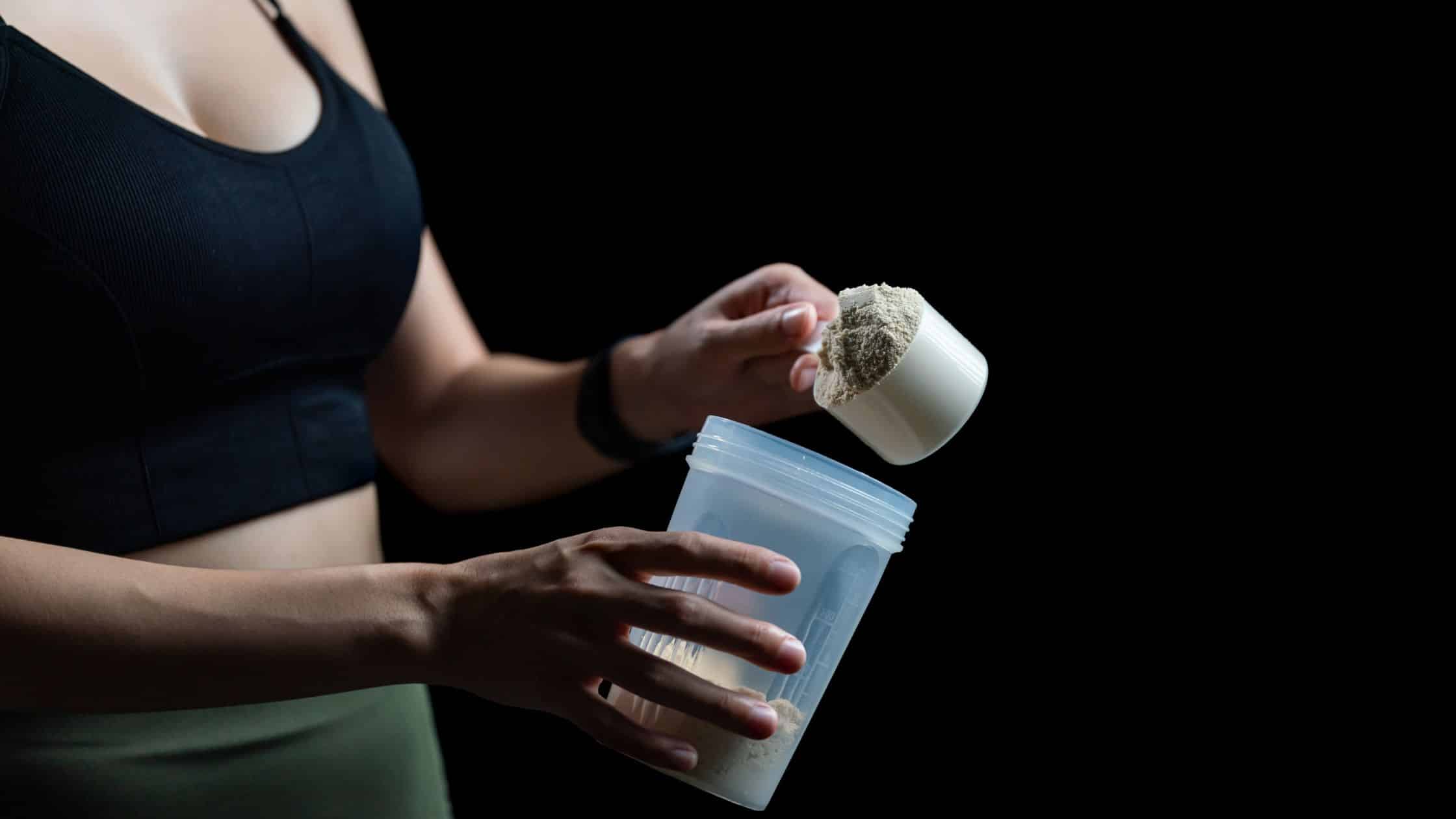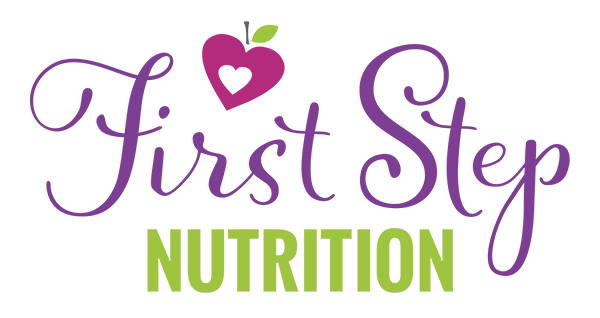
An dietitian’s guide to the best protein powder while breastfeeding: My top picks
Are you breastfeeding and wondering if your shakes are still safe? Our dietitian shares options for the best protein powder while breastfeeding. This post may contain affiliate links which won’t change your price but will share some commission.
I remember that constant knawing hunger of being a breastfeeding mom. As a dietitian, I know that postpartum is a necessary time to refuel your nutrient stores and support your baby’s growth with your milk. But as a mom of three, I also remember the new-mom fog and fatigue.
It’s not always easy to fuel yourself with enough nutritious food during this challenging time. It can be easier to drink some meals than eat solids to get enough calories during the day. Or maybe you’re a few months post-delivery and back at the gym, wondering if it’s safe to keep drinking your regular protein shakes.
So in this blog, I’m sharing some options for the best protein powder for nursing moms, ingredients to avoid, and homemade alternatives.
What are protein powders?
Protein powders are an isolated source of protein. Popular sources include dairy, soy, hemp or peas. These powders often have vitamins and minerals added. And often, other ingredients are added for flavour, thickening and sweetening the products.
When looking at a protein shake with a long list of ingredients, it can be hard to know what is a safe product while nursing. Thankfully, I‘m here to help.
Why would you use protein shakes when breastfeeding?
Mixing up a smoothie or shake might help you get the extra calories and nutrients needed while breastfeeding. Shakes or smoothies can also add to your fluid requirements.
You need 400-500 additional calories per day just to support milk production. If you’re having trouble finding the time and energy to make and eat nutritious foods, adding in a liquid snack can help you meet your energy and nutrient needs.
It’s not just extra calories and protein that you’ll need when nursing. You’ll also have to get in 1000mg calcium to prevent bone loss and 18mg iron to build your stores back up, which smoothies/shakes can help with too.
Good calcium additions could include yogurt, milk or fortified milk alternatives. Iron sources include spinach, hemp hearts or cooked red lentils. The lentils and hemp hearts will also beef up iron amounts.
How much protein do you need when breastfeeding
Studies suggest that the protein requirement for exclusively breastfeeding women is ∼1.7–1.9 g/kg/d. For example, if you weigh 140 lbs (63kg) that’s 107 to 120 grams of protein, which is a LOT!
You may not need to add a supplement to meet 100+ grams of protein per day if you include protein-rich foods in every meal and snack. I have a sample of what this can look like, in a free high-energy & protein meal plan perfect for postpartum below:
Are protein powders safe for breastfeeding moms?
Prefer to watch? I discuss ingredients to avoid and how to add your own protein sources to shakes in this video.
So many shake mixes you can buy contain many ingredients beyond just protein. Like Shakeology (check out my review here). While some of these ingredients may be beneficial, most are not tested in breastfeeding. While not quite as critical as during pregnancy, when your baby shares your blood, what you take in still passes through your breast milk in small amounts.
Here are a few added ingredients that you will want to look for in the ingredient list and probably avoid while breastfeeding.
1) Artificial Sweeteners
While safe, there is a lot of controversy about artificial sweeteners on the gut microbiome and weight. Artificial sweeteners have no health benefits when you could use extra energy at this life stage!
2) Added Sugars
The American Heart Association recommends that women have a daily limit of 25 grams of sugar. While yes, you can use extra energy, it’s best to get nutrients along with your energy. Add your own sweetness, fibre, and antioxidants by adding in fruit or yogurt.
3) Soy
The isoflavones in soy can be estrogenic. And at high concentrations, soy may reduce ovarian synthesis of estrogens. No need to worry about soy in foods – just supplements.
4) Rice-based
There are so many options that I would avoid rice protein isolates. This is because of the rice’s potential for concentrated amounts of arsenic.
5) Herbs
You might find a long list of herbs in some protein powder mixes. These can mimic drugs – natural does not necessarily mean safe. Especially while breastfeeding, when most herbs haven’t been tested for safety.
How to pick the best protein powders for breastfeeding
When looking for a protein powder, you can avoid the ingredients above and look for a simple ingredient list. Some contain only the protein, without added sweeteners, artificial flavours or supplements, which is best.
You also want to ensure your choice is third-party tested to avoid contaminants like heavy metals. The last time I went into a supplement store, I asked which third-party products were tested. The owner said everything on Canadian shelves is – but we wary if you buy online. A Natural Health Product number assures Health Canada has assessed the product.
Here are my top picks for the best type of protein shakes and specific brands for breastfeeding:
1) Whey Protein Powder
Whey protein while breastfeeding is a good choice for most moms who aren’t allergic to dairy or vegan. It is a popular protein supplement and one of the best-absorbed protein sources. Whey is from dairy and is a complete protein source, meaning it contains all the essential amino acids the body requires.
However, choosing a high-quality whey powder that does not contain harmful additives or sweeteners is essential. Unlike many other options, I couldn’t find a whey protein that contains only whey as an ingredient.
Naked Whey contains just added vanilla and some coconut sugar (5g) in addition to whey (affiliate link):
2) Collagen Protein Powder
Collagen protein powder is popular due to its claims to support healthy skin, hair, and nails. Collagen is easily digestible and blends easily into most fluids. I find it the easiest powder to use and like to mix it into my morning coffee (I use Aura’s collagen creamer, here’s my affiliate link).
Look for a high-quality collagen protein powder from grass-fed cows or wild-caught fish. It’s easy to find a collagen supplement with no added ingredients, and it blends easily and tastelessly into most foods and fluids.
Vital Protein is a popular brand. They sell both marine and bovine collagen (affiliate link):
3) Pea Protein Powder
Pea protein powder is another excellent option for breastfeeding women, especially for those with a dairy allergy or who want a vegan protein powder. It is a plant-based, easily digestible protein source. And unlike most plant-based proteins, pea contains all nine essential amino acids.
Pea protein powder is also rich in iron, which is essential postpartum to build your stores back up from pregnancy and birth.
But pea protein can have a more robust flavour, which could be harder to tolerate in pregnancy if you’re more sensitive than usual to strong flavours. You should be able to mask the earthy flavour by mixing pea protein with fruit. But make sure the manufacturer hasn’t added a bunch of sweeteners to cover up the flavour!
Here’s a good option if you’re looking for pea protein (affiliate link):
4) Hemp Protein Powder
Hemp protein powder is another good plant-based option for breastfeeding women. And hemp has the benefit of containing an extra nutrition boost from fibre, omega-3 fatty acids and iron – all very important for you and your growing baby!
Like other plant-based protein sources, hemp has a strong flavour that you may want to hide with the addition of other ingredients. Here’s an excellent option to try (affiliate link).
Homemade protein shake ingredients for breastfeeding:
There are many ways to add protein to your smoothies without using store-bought protein powders. Here are some options for protein from food sources that you probably already have in your kitchen and the amount of protein they contain:
- Yogurt: 6g per half cup
- Cow’s milk: 9g per cup
- Oat Milk 4g per cup
- Skim milk powder: 8g per 1/3 cup
- Hemp hearts: 3g per 1 Tbsp
- Chia seeds: 2g per 1 Tbsp
- Red lentils: 3g per cooked 3 Tbsp
- Nut butter: 3g per 1 Tbsp
- Pasteurized egg whites (in the carton): 7g per ¼ cup
Conclusion
Bottom line: protein powder is an easy way to fill nutrient gaps and boost energy intake while breastfeeding. While not all women will need them, they might be helpful if you don’t have the time and energy to eat enough nutritious foods.
However, choosing a powder that is safe and free from harmful additives or fillers is essential for your baby’s healthy development. You can add your own high-protein ingredients or look for a powder with simple ingredients.
Keep up the good work growing that baby <3.
Before you go, remember to grab your free 7-day postpartum meal plan here:
Founder of First Step Nutrition | Registered Dietitian Nutritionist
Jen believes raising happy, well-nourished eaters who have a healthy relationship with food doesn't have to be a battle! She is an author and speaker with 18 years of experience specializing in family nutrition and helps parents teach their kids to try new foods without yelling, tricking, or bribing.







No Comments